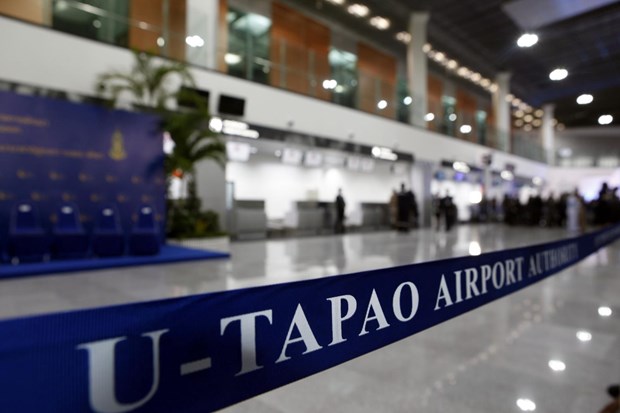Thailand to adjust 20-year national strategy
Thứ Hai, 13/04/2020, 19:19
The National Economic and Social Development Council (NESDC) of Thailand has been ordered to revise the 20-year national strategy (2018-2037) and the 12th national economic and social development plan (2017-2021) to catch up with changing social and economic trends caused by the global economic slowdown and the COVID-19 pandemic.
 |
|
Transforming U-tapao airport into an aviation hub is among the projects supported under the 20-year national strategy plan (Source:Bangkokpost.com) |
The National Economic and Social Development Council (NESDC) of Thailand has been ordered to revise the 20-year national strategy (2018-2037) and the 12th national economic and social development plan (2017-2021) to catch up with changing social and economic trends caused by the global economic slowdown and the COVID-19 pandemic.
At the latest meeting of the National Strategy Committee, Prime Minister Prayut Chan-o-cha requested the NESDC to revise the master plan for the first five years (2019-2023) under the 20-year national development strategy.The national strategy, which came into force on October 13, 2018, has 23 master plans. Under those plans, there are 15 urgent flagship projects that must be implemented during 2019-23.
The first five years (2019-23) of development are based on requirements set under the national strategic plan. Gross national income per capita is targeted to increase by an average of 70,000 (2,100 USD) baht a year to reach 360,000 baht (10,100 USD) in 2023, up from 290,000 baht in 2019.
Growth in agriculture, industry and services is targeted at 3.8 percent, 4.6 percent and 5.4 percent, respectively, in the 12th national plan.
NESDC Secretary-General Thosaporn Sirisamphand said the council is scheduled to propose a revised plan by September.
Danucha Pichayanan, NESDC deputy secretary-general, said the 20-year strategic plan already took into account the possible impact of new diseases such as Severe Acute Respiratory Syndrome (SARS) and Middle East Respiratory Syndrome (MERS).
However, the impact of the COVID-19 is deeper and projected to last a long time, causing problems much more complicated than those of SARS and MERS, he stated.
COVID-19 also struck while the global economy was already slowing down. Therefore, rehabilitating the economy may take a while, and some business sectors may encounter more difficulty resuming their previous healthy growth, especially automotive, aviation and tourism, he added.
VNA

